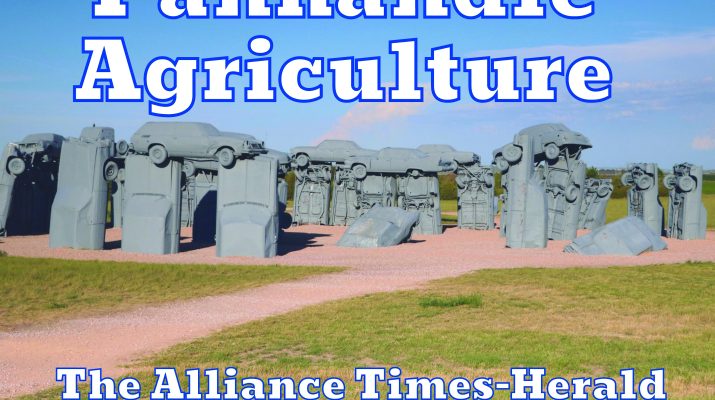Nebraska USDA Farm Service Agency (FSA) Executive Director John Berge is announcing the opening of applications for a special Conservation Reserve Program (CRP) initiative designed to increase habitat for upland wildlife.
The Upland Wildlife State Acres for Wildlife Enhancement (SAFE) CRP aims to create more acres for wildlife such as greater prairie chickens, northern bobwhite, plains sharp-tailed grouse, ring-neck pheasants, songbirds and pollinators. It also is designed to improve water quality and soil health and reduce soil erosion and sequester carbon.
Through SAFE, entities partner with USDA’s FSA and Natural Resources Conservation Service (NRCS) on CRP projects to enhance habitat for target wildlife species. The Upland Wildlife SAFE is a joint project by FSA, NRCS, Nebraska Game and Parks Commission and Pheasants Forever of Nebraska. The proposal was approved in September.
“We are excited about the opportunity to offer landowners CRP rental payments through this program in return for conservation practices that have such a broad impact. Not only is this initiative great for wildlife habitat, the practices to be used are excellent for overall soil health and water quality,” said Nebraska FSA State Executive Director John Berge.
Landowners must offer tracts with a minimum of five acres. There is no maximum number of acres per tract. Cropland must have been planted or considered planted to an agricultural commodity four of the six crop years from 2012-2017 or meet a rotation between 2006 through 2017. Landowners with expired or expiring CRP can offer acres for re-enrollment.
There are 69 Nebraska counties included in the project area: Antelope, Banner, Boone, Box Butte, Boyd, Buffalo, Burt, Butler, Cass, Cedar, Chase, Cheyenne, Colfax, Cuming, Custer, Dakota, Dawes, Dawson, Deuel, Dixon, Dodge, Dundy, Franklin, Frontier, Furnas, Gage, Garden, Garfield, Gosper, Greeley, Harlan, Hayes, Hitchcock, Holt, Howard, Jefferson, Johnson, Keith, Kimball, Knox, Lancaster, Lincoln, Madison, Morrill, Nance, Nemaha, Nuckolls, Otoe, Pawnee, Perkins, Pierce, Platte, Red Willow, Richardson, Saline, Saunders, Scotts Bluff, Seward, Sheridan, Sherman, Sioux, Stanton, Thayer, Thurston, Valley, Washington, Wayne, Webster, and Wheeler.
There may be signing incentive and practice incentive payments available, as well as additional incentives available through project partners, such as the Nebraska Game and Parks Commission.
To learn more about the Upland Wildlife SAFE, click here to view the fact sheet on the Nebraska FSA website or visit crpsignup.com, or contact your nearest USDA Service Center.
Other CRP Signups
CRP SAFE projects are part of the continuous signup opportunities through Nebraska FSA. Other signups still to come include General CRP and Grassland CRP. The 2023 application periods for these will be announced at a later time.
Through CRP, producers and landowners establish long-term, resource-conserving plant species, such as approved grasses or trees, to control soil erosion, improve soil health and water quality, and enhance wildlife habitat on agricultural land. In addition to the other well-documented benefits, lands enrolled in CRP are playing a key role in climate change mitigation efforts across the country.
Landowners interested in learning more about the program can contact their local USDA Service Center.
Signed into law in 1985, CRP is one of the largest voluntary private-lands conservation programs in the United States. It was originally intended to primarily control soil erosion and potentially stabilize commodity prices by taking marginal lands out of production. The program has evolved over the years, providing many conservation and economic benefits. Learn more at fsa.usda.gov/crp.
USDA touches the lives of all Americans each day in so many positive ways. Under the Biden-Harris Administration, USDA is transforming America’s food system with a greater focus on more resilient local and regional food production, fairer markets for all producers, ensuring access to safe, healthy and nutritious food in all communities, building new markets and streams of income for farmers and producers using climate smart food and forestry practices, making historic investments in infrastructure and clean energy capabilities in rural America, and committing to equity across the Department by removing systemic barriers and building a workforce more representative of America. To learn more, visit www.usda.gov.

